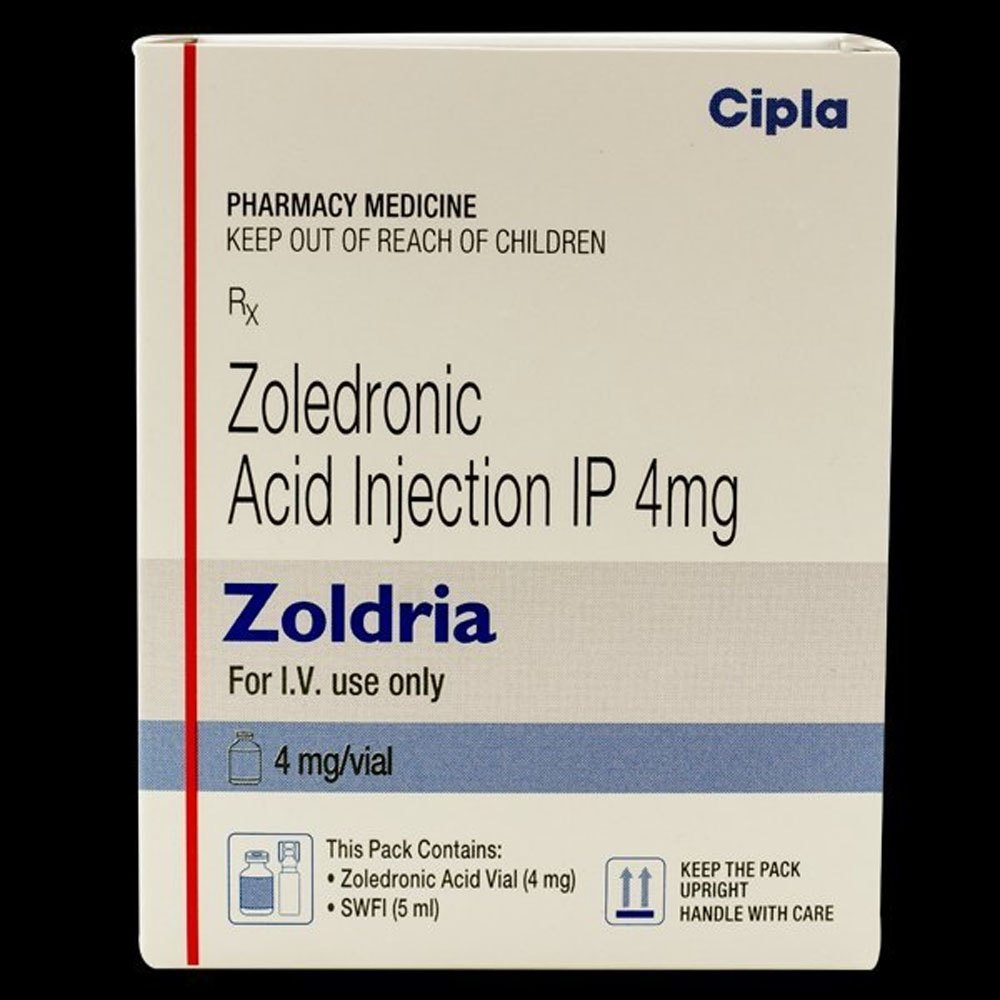Zoldria (Zoledronic Acid) 4mg Injection is a medication used to treat various bone-related disorders, including:
- Hypercalcemia of malignancy (high levels of calcium in the blood caused by cancer)
- Osteoporosis (weakened bones)
- Paget’s disease of bone
- Bone metastases (cancer that has spread to the bones)
Composition: Each 4mg injection of Zoldria contains 4mg of Zoledronic Acid (an active pharmaceutical ingredient), which is a bisphosphonate medication.
Mechanism of Action: Zoledronic Acid works by:
- Reducing the activity of osteoclasts, which are cells that break down bone tissue
- Increasing the activity of osteoblasts, which are cells that build new bone tissue
- Decreasing the production of parathyroid hormone, which is a hormone that regulates calcium levels in the blood
Dosage: The recommended dose of Zoldria varies depending on the condition being treated. For hypercalcemia of malignancy, the recommended dose is 4mg every 28 days. For osteoporosis, the recommended dose is 5mg every 2 years.
Side Effects: Common side effects of Zoldria include:
- Bone pain
- Fatigue
- Fever
- Headache
- Muscle pain
- Nausea
- Vomiting
Rare but serious side effects include:
- Severe allergic reactions, including anaphylaxis and Stevens-Johnson syndrome
- Osteonecrosis of the jaw (death of bone tissue in the jaw)
- Atypical femoral fractures (broken thigh bone)
- Eye problems, such as inflammation or vision loss
Recommendation: Zoldria is recommended for patients with bone-related disorders who have not responded to other treatments or who have had unacceptable side effects. Patients with kidney disease or other medical conditions that may affect their ability to respond to treatment should be closely monitored while taking Zoldria.
Important Note:
- Zoldria should be used under the guidance of a healthcare provider with experience in the treatment of bone-related disorders.
- Patients should be advised to report any symptoms of hypersensitivity reactions, such as rash, itching, swelling, or difficulty breathing.
- Zoldria may interact with other medications, such as warfarin and certain antibiotics. Patients should inform their healthcare provider of all medications they are taking before starting Zoldria therapy.
- Patients with a history of kidney disease or other medical conditions that may affect their ability to respond to treatment should be closely monitored while taking Zoldria.
Special Precautions:
- Patients with a history of kidney disease should be closely monitored while taking Zoldria.
- Patients with a history of osteoporosis should be closely monitored while taking Zoldria.
- Patients with a history of hypersensitivity reactions should be closely monitored while taking Zoldria.
- Pregnant or breastfeeding women should consult their healthcare provider before taking Zoldria.




Reviews
There are no reviews yet.